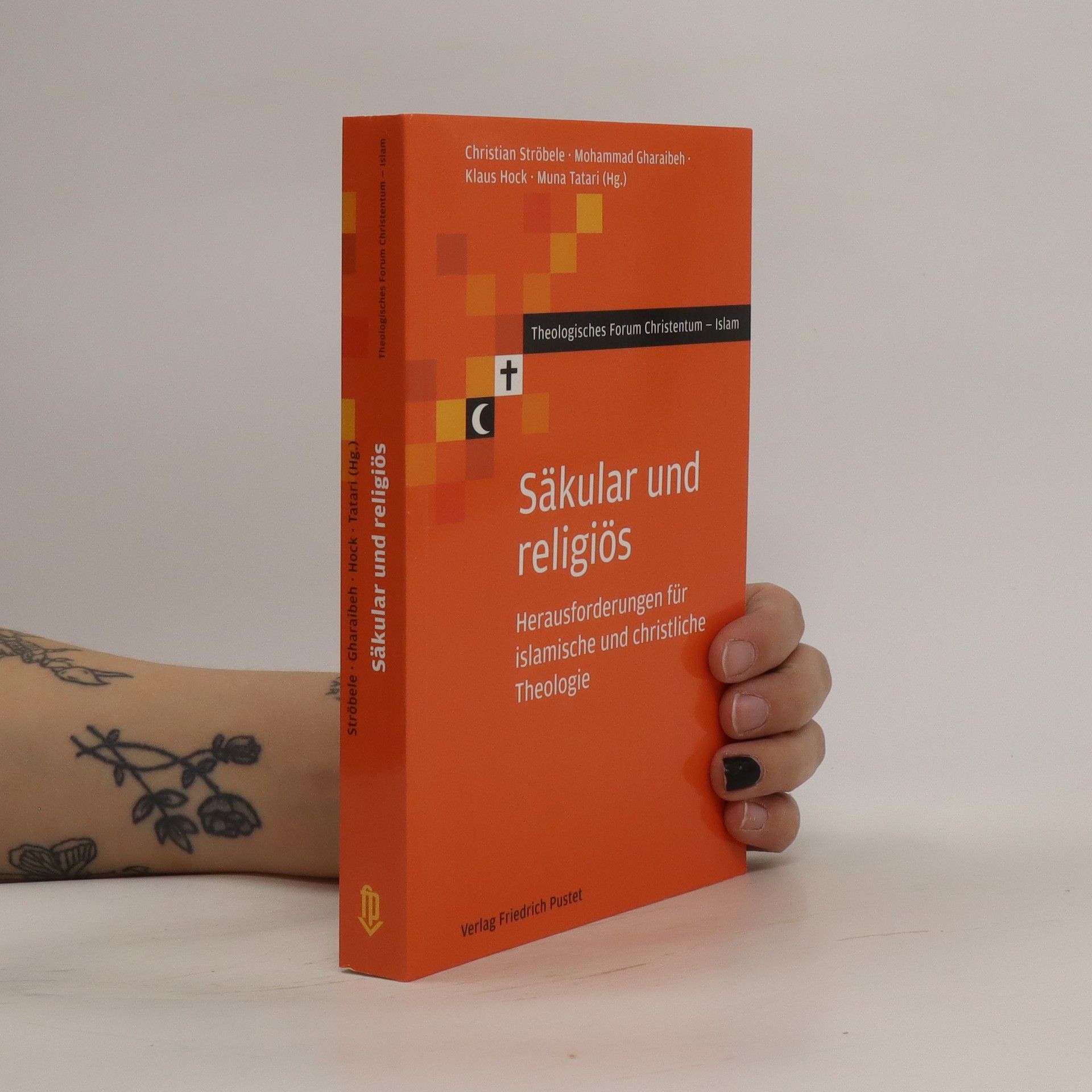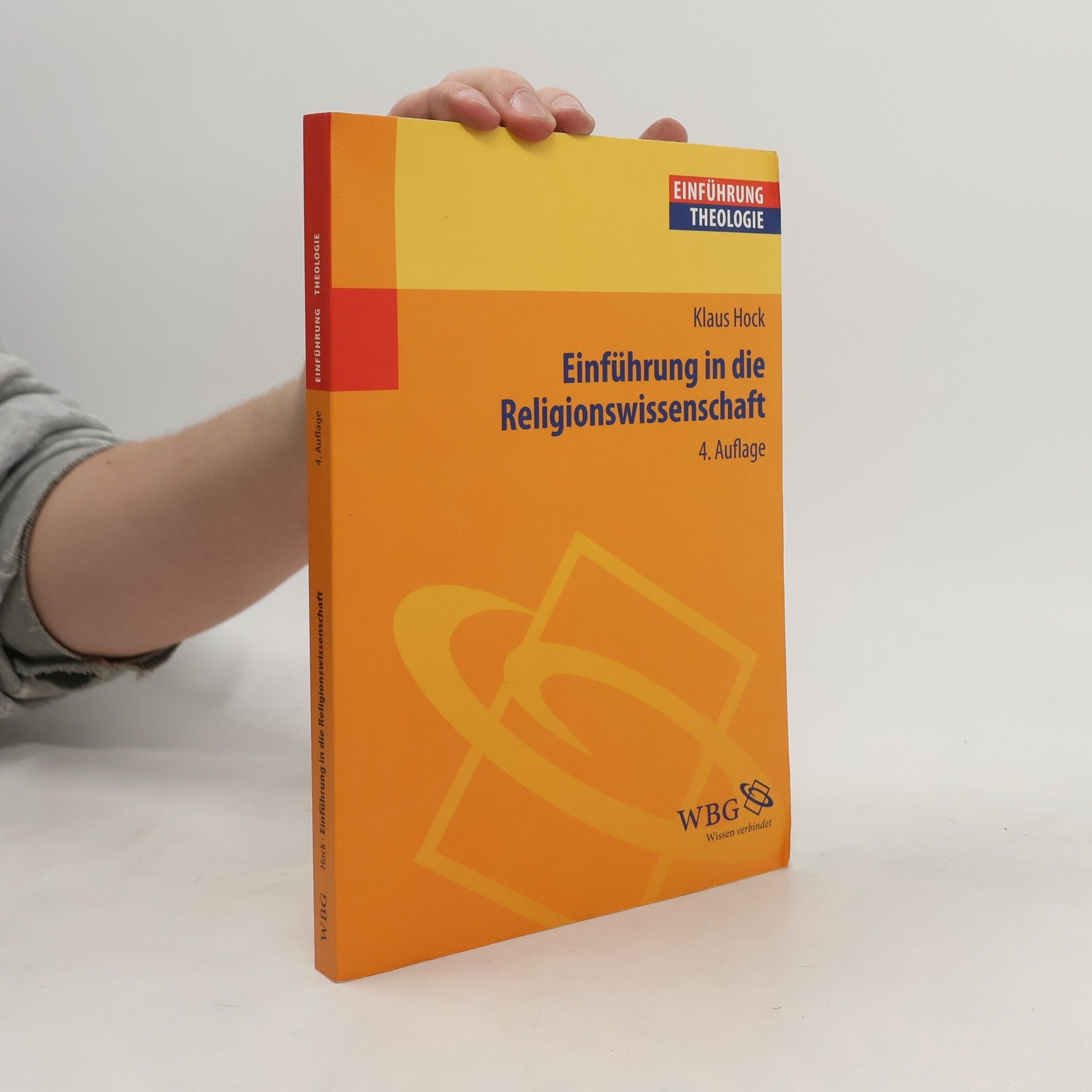»Dialog« gilt allgemein als anerkanntes Ziel interreligiöser Begegnungen. Und doch steht »Dialog« nicht über den Konflikten und jenseits der Interessen: Wer bestimmt die Gestaltung und die Ziele von Dialogen? Welche Bedeutung hat die unterschiedliche Verteilung von Interessen, Geldern, Publikationsmöglichkeiten? Wie steht es um den Einfluss der Vorverständnisse von »Religion«, »Vernunft und Verständigung« und »Gesellschaft«? Diesen Machtfragen gehen internationale Wissenschaftler:innen nach.
Klaus Hock Book order (chronological)






Zukunfts-Sichten zwischen Prognose und Divination
- 320 pages
- 12 hours of reading
Der Wunsch, die Zukunft zu erahnen, ist ein zentrales Thema, das die Menschen seit jeher beschäftigt. In diesem Buch wird die Verbindung zwischen Vergangenheit, Gegenwart und Zukunft beleuchtet. Es wird untersucht, wie historische Ereignisse und persönliche Erfahrungen unsere gegenwärtigen Entscheidungen beeinflussen und welche Rolle das Streben nach Vorhersehbarkeit in unserem Leben spielt. Der Autor lädt die Leser ein, über ihre eigenen Erwartungen und Hoffnungen nachzudenken und sich mit der Frage auseinanderzusetzen, wie wir aus der Vergangenheit lernen können, um die Zukunft besser zu gestalten.
Bachzitate: Widerhall und Spiegelung
Übergänge zwischen Klang und Bild im Anschluss an Bach
- 256 pages
- 9 hours of reading
'Militant Islam' vs. 'Islamic Militancy'?
- 272 pages
- 10 hours of reading
Discourses on 'radical Islam,' on 'Islamic extremism,' or on 'religious violence' in Islamic contexts are en vogue - in and beyond academia. But in view of the highly contested topic of political Islam, the challenge starts already with the preferred terminology. What actually are we talking about when we talk about 'salafism,' 'jihadism,' 'Islamic terrorism,' etc.? This edited volume provides a collection of contributions that due to their respective academic cultures and disciplinary locations display a multifaceted variety of approaches to the research field and its subject.
Die „klassische“ Säkularisierungsthese ging von einem Zusammenhang zwischen Modernisierung und dem Bedeutungsrückgang von Religion aus. Diese These erfährt Kritik ebenso wie vielfältige Fortschreibungen und Modifikationen. Wie hat sich das Verhältnis zwischen Religion und nichtreligiöser Weltdeutung gewandelt? Wie gestaltet es sich in politischer und rechtlicher Hinsicht heute? Wie können die unterschiedlichen Gestaltungsformen und Verständnisse bewertet werden? Welche Gesichtspunkte erlauben es, den Begriff der Säkularisierung positiv theologisch anzueignen oder kritisch weiterzuführen? Diese und weitere Fragen diskutieren, im Gespräch mit den Nachbardisziplinen, die theologischen Beiträge des Bandes als gemeinsame gesellschaftliche Herausforderung.
Einführung Theologie: Einführung in die Religionswissenschaft - 4. Auflage
- 211 pages
- 8 hours of reading
Einführung in die Religionswissenschaft
- 211 pages
- 8 hours of reading
Religionswissenschaft ist die empirische, historische und systematische Erforschung von Religionen und religiösen Phänomenen. Diese Einführung behandelt die Disziplin und bietet eine strukturierte Übersicht über ihre wichtigsten Teilgebiete, orientiert an der Einteilung in Historische und Systematische Religionswissenschaft, die sich gegenseitig ergänzen. Neben traditionellen Teildisziplinen wie Religionsgeschichte, -soziologie, -ethnologie und -psychologie werden auch neuere Entwicklungen wie Religion-Umwelt-Forschung, Religionsästhetik und Religionsökonomik thematisiert. Der Autor präsentiert die Religionswissenschaft als eigenständige Disziplin und beleuchtet ihr Verhältnis zur Philosophie und Theologie, wobei er betont, dass sie diese nicht ersetzt, sondern ergänzt. Das Buch skizziert das Profil einer selbstbewussten kulturwissenschaftlichen Disziplin und behandelt auch wissenschaftsorganisatorische Aspekte sowie Kommunikationsfragen. Ein Ausblick auf zukünftige Themen und Aufgaben der Religionswissenschaft wird gegeben. Angesichts der aktuellen globalen politischen Relevanz von Religionen kommt der Disziplin eine besondere Verantwortung zu. Die didaktisch aufbereitete Einführung richtet sich an Studierende und Lehrende der Religionswissenschaft und Theologie.
Oftmals wird vergessen, dass das Christentum seinen Ursprung im Nahen Osten hat und zunächst in Afrika beheimatet war. Während die ägyptische, äthiopische und vorderasiatische Christenheit in unmittelbarer Weise in der ältesten Christentumsgeschichte verwurzelt ist, sind die Kirchen in den Regionen südlich der Sahara aus der Missionstätigkeit im Kontext der kolonialen europäischen Expansion entstanden und erleben seit dem Ende der Kolonialzeit ein beispielloses Wachstum, das bis in die Gegenwart anhält und sich in Gestalt sehr vielfältiger kirchlicher Neugründungen Bahn bricht. Diese moderne Kirchengeschichte Afrikas und des Nahen Ostens berücksichtigt den bedeutsamen Beitrag der einheimischen Akteure und Akteurinnen insbesondere im Blick auf die Bedeutung der vielfältigen sog. 'Afrikanischen Unabhängigen Kirchen' oder auch hinsichtlich des Ringens palästinensischer Christinnen und Christen um eine eigene kirchliche Identität in einer islamisch geprägten Umwelt.
Ratgeber Leasing
- 344 pages
- 13 hours of reading

